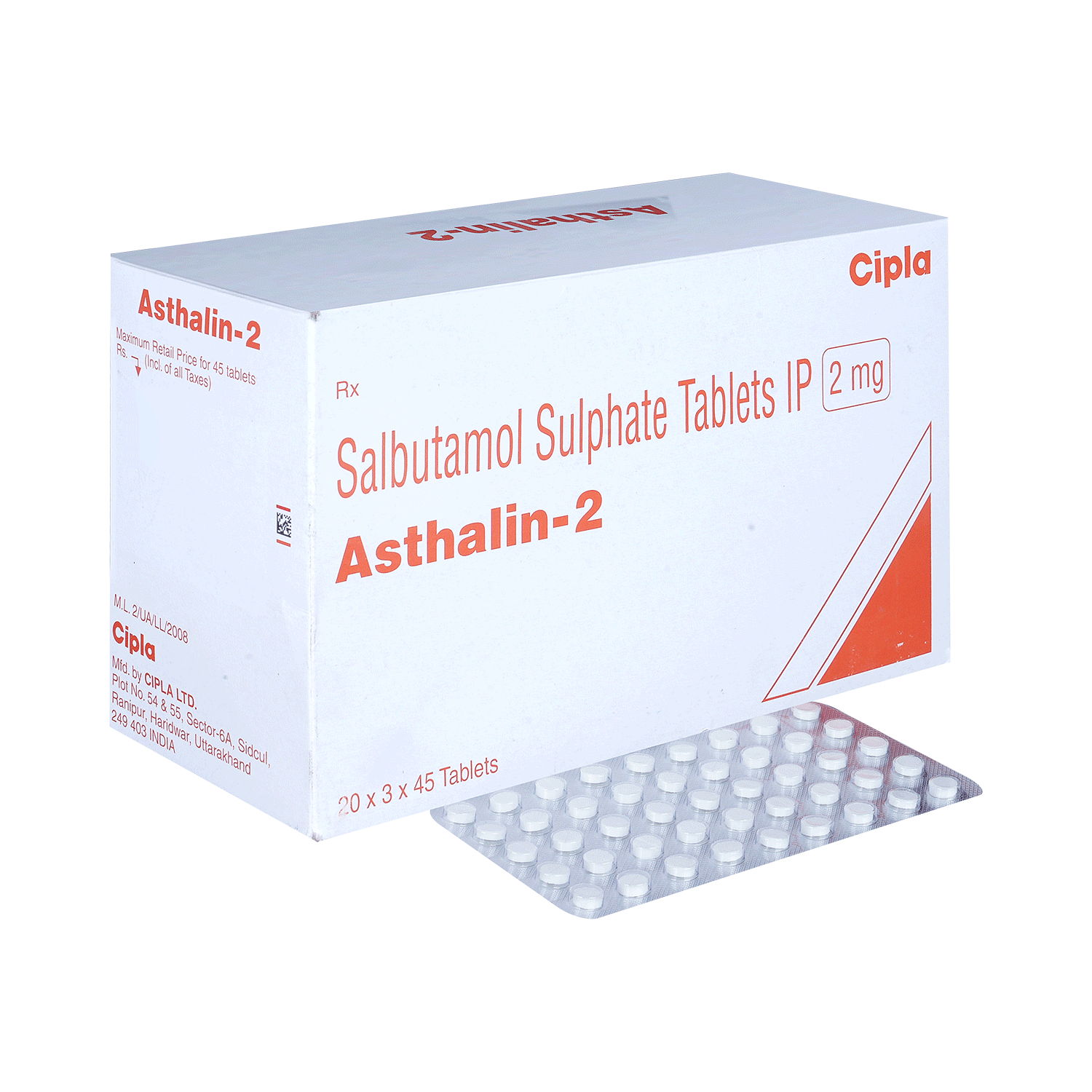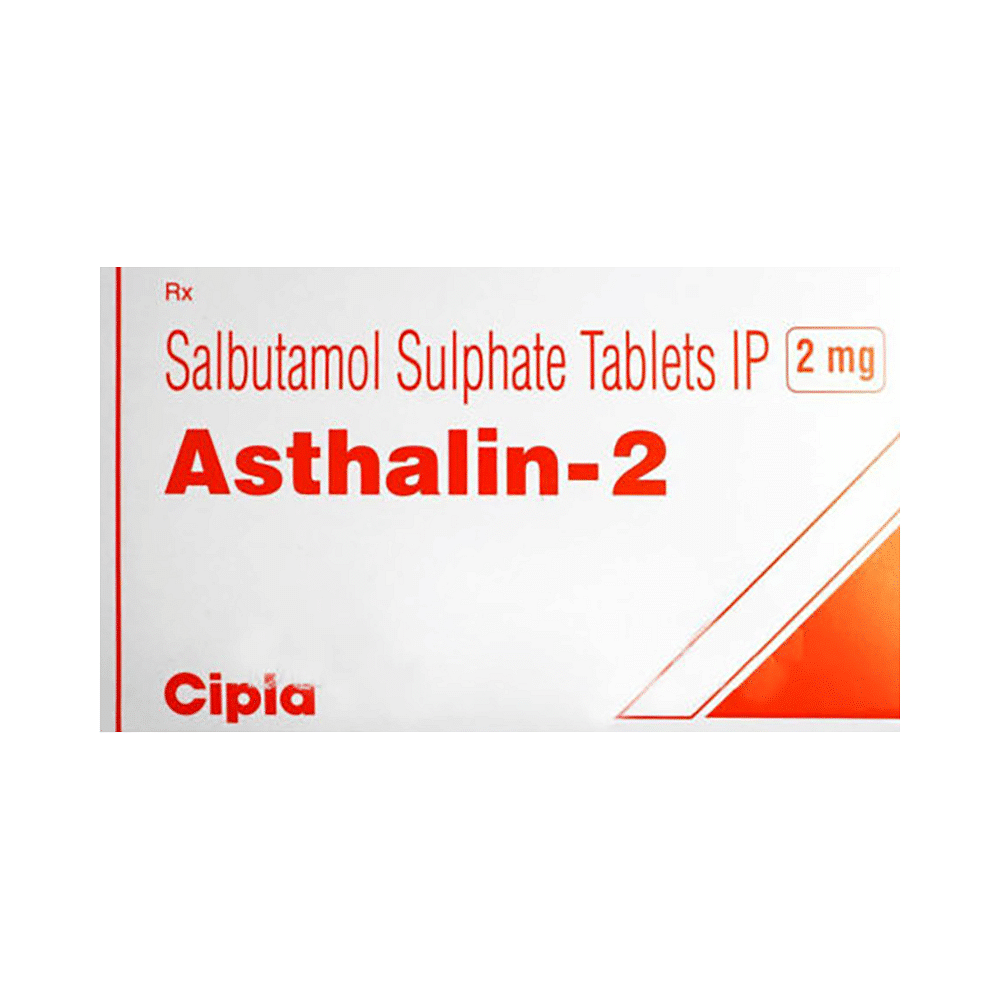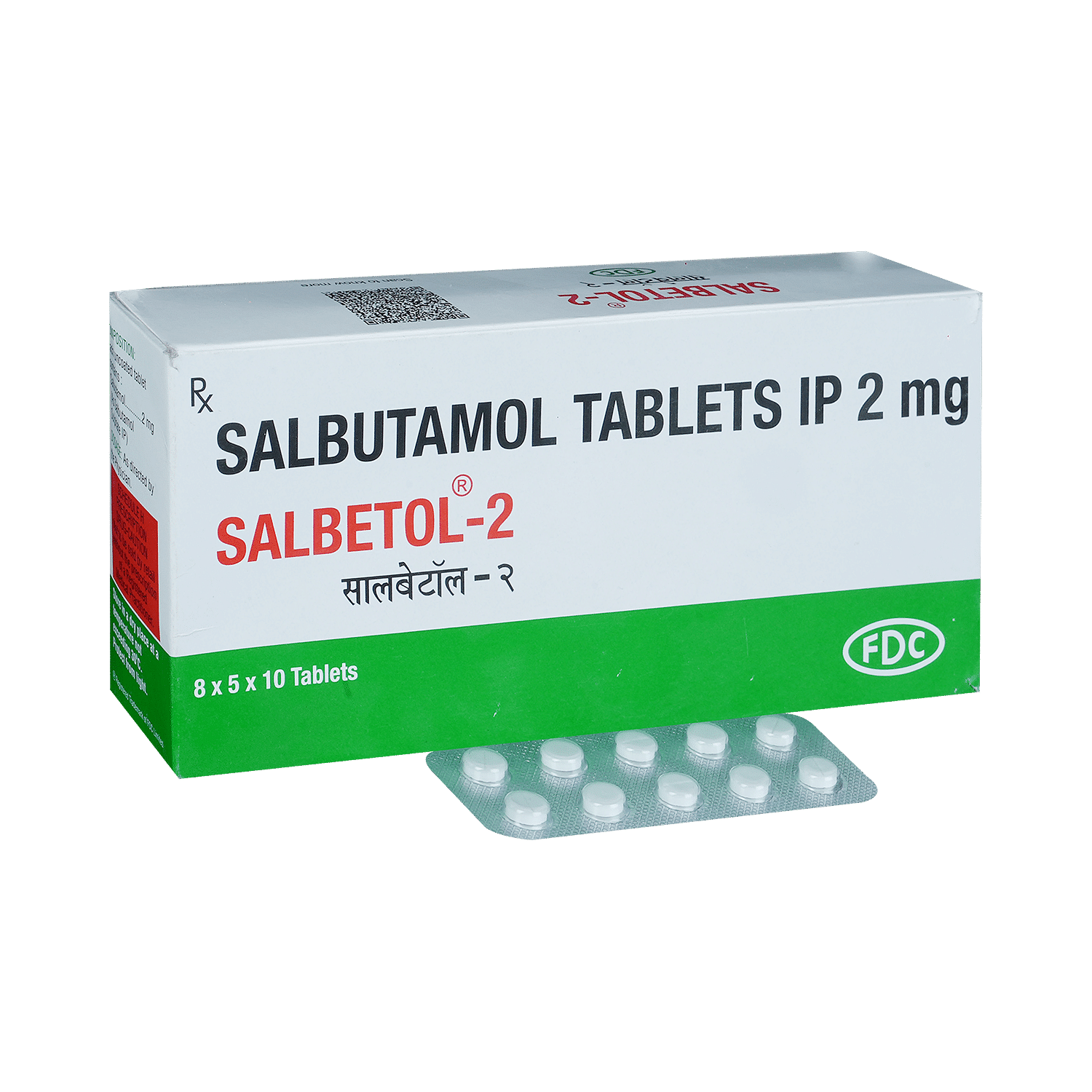
Salbid 2mg Tablet
Manufacturer
Micro Labs Ltd
Salt Composition
Salbutamol (2mg)
Key Information
Short Description
Salbid 2mg Tablet is used to relieve symptoms of asthma and chronic obstructive pulmonary diseases (COPD) such as coughing, wheezing, and breathlessness.
Dosage Form
Tablet
Introduction
You can take Salbid 2mg Tablet with or without food. The dose will depend on your condition and how you respond to the medicine. Try to take it at the same time each day. It is important to keep taking this medicine until your doctor tells you not to. Use this medicine regularly to get the most benefit from it even if you feel well. This medicine is generally safe however it may cause tremors, headaches, palpitation, fast heart rate, nervousness, and muscle cramps in some people. These are often not dangerous and should gradually improve as your body gets used to the medicine. There are other, rarer, side effects and you should call your doctor straight away if you get chest pain, a very bad headache, or very bad dizziness.
Directions for Use
Take this medicine in the dose and duration as advised by your doctor. Swallow it as a whole. Do not chew, crush or break it. Salbid 2mg Tablet may be taken with or without food, but it is better to take it at a fixed time.
How it works
Salbid 2mg Tablet is a bronchodilator. It works by relaxing the muscles in the airways and widens airways. This makes breathing easier.
Quick Tips
Salbid 2mg Tablet is used to relieve symptoms of asthma and chronic obstructive pulmonary disease (COPD) such as coughing wheezing and breathlessness. It must be taken regularly to help keep the airways open at all times. Your doctor may regularly monitor your blood potassium levels. Inform your doctor if you notice muscle twitching, weakness, or an irregular heartbeat. Inform your doctor if you have a history of heart diseases or if you experience headaches or chest pain.
Related Medicines

Asthalin-2 Tablet

Asthalin 2 Tablet

Salmaplon 2mg Tablet

Asthacip 2mg Tablet

Asthalin Tablet 2mg

Salbetol 2 Tablet

Bronkolin 2mg Tablet
Frequently asked questions
What happens if I take a higher than recommended dose of Salbid 2mg Tablet?
Exceeding the recommended dosage of Salbid 2mg Tablet may lead to seizures, chest pain, nervousness, headaches, dry mouth, nausea, dizziness, and fatigue. High doses might also result in rapid or irregular heartbeat, uncontrolled shaking of any body part, and difficulty sleeping. Seek immediate medical attention if you experience these effects.
Is it safe for me to take Salbid 2mg Tablet if I have heart disease?
Salbid 2mg Tablet is generally considered safe, but its use depends on the severity of your heart condition. If you develop chest pain or any symptom indicating worsening heart disease while taking Salbid 2mg Tablet, consult a doctor immediately.
What precautions should I take as a diabetic when using Salbid 2mg Tablet?
Salbid 2mg Tablet may raise blood sugar levels. Therefore, your doctor might adjust your insulin or antidiabetic medication dosage. Regularly monitor your blood glucose levels and don't miss scheduled appointments with your doctor. Inform your doctor immediately if you experience a sudden rise in blood sugar.
I'm experiencing headaches and shakiness since starting Salbid 2mg Tablet, is this due to the medication? Will these symptoms subside?
Headaches and shaking might be related to Salbid 2mg Tablet. Shaking is a common side effect that often subsides over time. For headaches, stay hydrated, get adequate rest, and avoid alcohol. Headaches usually disappear within a week. If they persist longer than this, contact your doctor.
When should I take Salbid 2mg Tablet?
Use Salbid 2mg Tablet whenever necessary to relieve symptoms of asthma such as coughing, shortness of breath, and tightness in the chest. You can also take it before potential asthma attacks occur (e.g., after strenuous activity or allergen exposure).
Can I smoke while using Salbid 2mg Tablet?
No, smoking is strongly discouraged when taking Salbid 2mg Tablet. Smoking irritates the lungs and might make breathing more difficult, especially for those with asthma.


